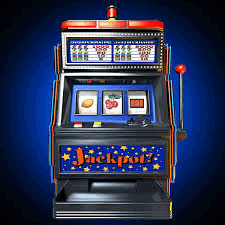 Slots Operators Seeing Lemons – WHEELING – After 400 West Virginia club, tavern, restaurant and parlor owners paid a total of about $70 million for the right to operate slot machines in 2011, they believed their state Lottery Commission permits would be valid for 10 years.
Slots Operators Seeing Lemons – WHEELING – After 400 West Virginia club, tavern, restaurant and parlor owners paid a total of about $70 million for the right to operate slot machines in 2011, they believed their state Lottery Commission permits would be valid for 10 years.
Members of the West Virginia Amusement & Limited Video Lottery Association now intend to sue state Lottery Director John Musgrave, claiming he is forcing them either to purchase new machines or make $3,000 upgrades to each terminal by the end of 2017 – four years before their permits expire.
Many of our members feel like they have been subjected to a classic ‘bait and switch,'” said Anthony “Herk” Sparachane, a Wheeling resident and entrepreneur who serves as president of the LVL association. “These West Virginia businesses would not have bid for as many permits, or paid nearly as much for a permit, if they thought that existing terminals would be made obsolete before the end of the permit period.
The Mountain State adopted the Limited Video Lottery Act in 2001 as a means of regulating illegal “gray machines” found throughout West Virginia at the time. The original 10-year licenses for about 9,000 machines expired in 2011.
According to LVL association attorney William C. Brewer, business operators paid an average of $9,200 in 2011 for new permits to operate each machine until 2021.
It would cost an average of $3,000 to upgrade each of the machines as Musgrave desires, and brand new machines cost an estimated $15,000 to $20,000 each.
The terminals are working just fine, and people throughout the state are enjoying them,” Sparachane said.
The Lottery Commission treats limited video lottery machines – found in many local restaurants, bars and fraternal organization establishments – differently than the slot machines found at Wheeling Island Hotel-Casino-Racetrack or Mountaineer Casino, Racetrack and Resort. Chief among the differences is the tax rate imposed on the machines, as the state has a 52-percent tax rate on limited video lottery but only a 42-percent rate on slots at the tracks.
Profits from video lottery go toward state tourism, education and programs for senior citizens. Excess funds are used to provide college scholarships, including the PROMISE Scholarship, and support economic development bonds.
According to Brewer, Nevada-based video lottery manufacturer International Game Technology told Musgrave in October 2012 that it planned to discontinue one of two computer communications systems that operate its machines. He said the company is offering to upgrade the West Virginia terminals for about $3,000 each.
The net result of the director’s actions is to force West Virginia’s limited video lottery permit holders to pay tens of millions of dollars to a Nevada corporation whose annual revenue is more than 10 times those of all limited video lottery operators and retailers in West Virginia combined,” Brewer stated in a letter to Musgrave dated Tuesday.
This is money that should stay in West Virginia, and could be used by the restaurants, taverns and others in the video lottery business to improve their facilities, expand their services and pay their employees,” Sparachane added.
Brewer said the association wants a court to allow the existing machines to operate until 2021 as originally planned, or require the state to pay for the upgrades.
West Virginia law requires plaintiffs to provide a 30-day notice of intent to sue a state agency. Lottery Commission spokeswoman Nikki Orcutt said Thursday she did not believe the agency had received official notification of the suit, adding the commission typically does not comment on pending litigation.
